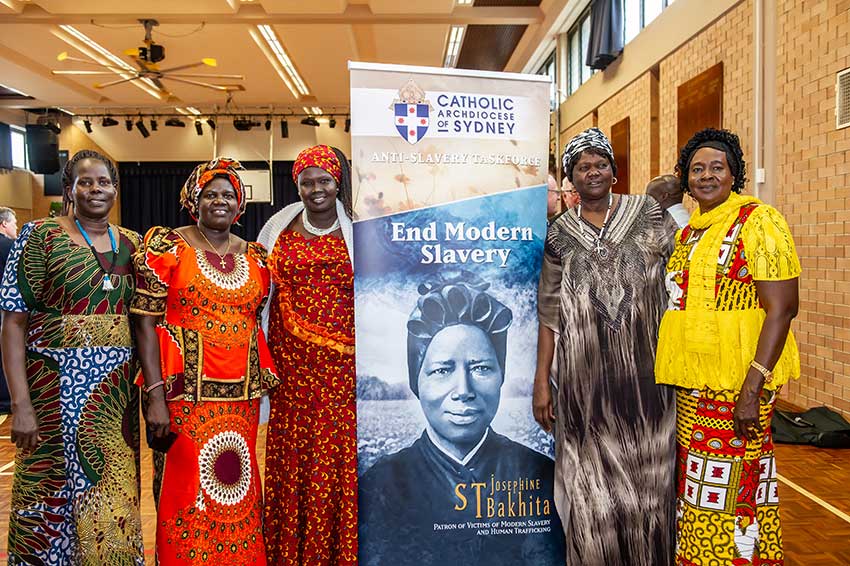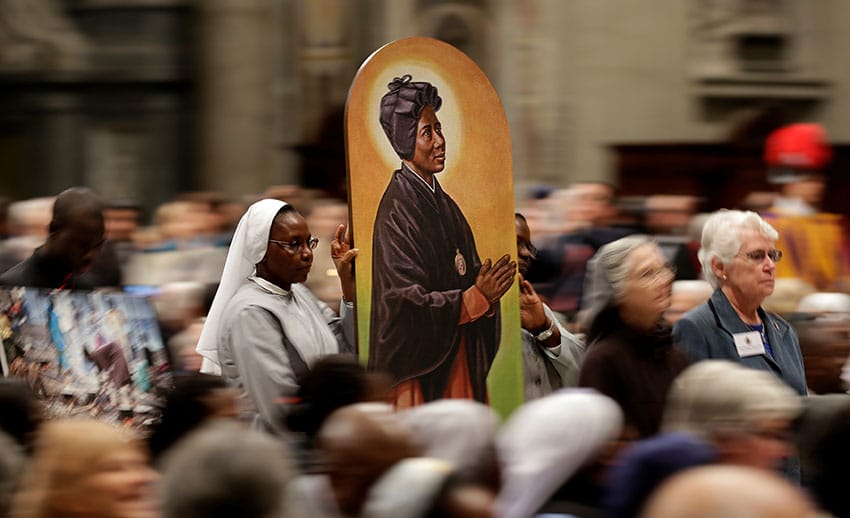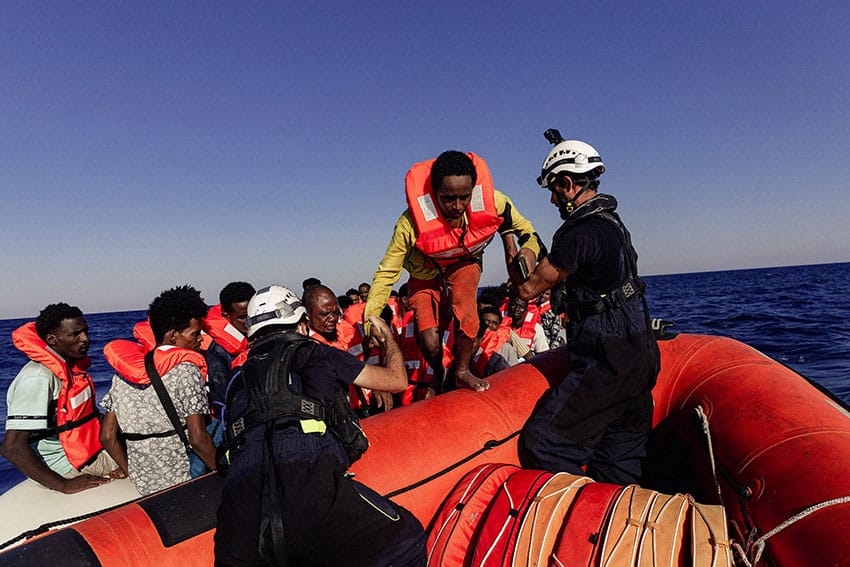
Pope Francis calls for Catholic communities worldwide to join him in commemorating St Bakhita’s Day, the Catholic Anti-Slavery Day on 8 February. Catholics around the world commemorate the Feast Day Mass of St Josephine Bakhita – the Patron Saint of South Sudan and Sudan, Patron Saint of victims of modern slavery and human trafficking – to encourage the Catholic faithful to pray for all those affected by the crimes of modern slavery and human trafficking and work to eradicate this crime. As Catholics, we’re united in our belief that action against modern slavery is a fundamental Catholic Social Teaching.
The eradication of modern slavery and the pastoral care of victims is a priority for the Catholic Church. The Holy Father continually draws the attention of the Church and the wider world to this moral and human crisis.
Modern slavery deprives people of their basic human rights and dignity. Modern slavery harms individuals, families, communities, and society as a whole.
Over 50 million people are estimated to be in modern slavery worldwide. This is not just overseas, with thousands of migrant workers experiencing the worst forms of labour exploitation here in Australia.

Pope Francis has called Catholic individuals and institutions worldwide to create an economy of care, an economy that does not exploit workers.
Five years ago today the Most Reverend Anthony Fisher OP Archbishop of Sydney, responded to the Holy Father’s call to action with the launch of the Anti-slavery Taskforce’s first report.
Four years ago the Modern Slavery Act 2018 was introduced as an Australian Government commitment to the United Nations Sustainable Development Goals, specifically SDG 8.7, to end modern slavery by 2030.
The Act requires large businesses and non-profits to assess, address and mitigate modern slavery risks to people in supply chains and operations.
Today, the Catholic Archdiocese of Sydney manages the Australian Catholic Anti-slavery Network, known as ACAN, and the ACAN modern slavery risk management program.
I am inspired to report to you that 90 per cent of Catholic organisations, reporting under the Modern Slavery Act, participate in the ACAN Program.

Through ACAN, Catholic organisations now have unprecedented access to expertise in all facets of modern slavery from supplier management to remediation.
Walking the talk
To state again the words of Anthony Fisher OP, Archbishop of Sydney, in reference to ACAN: “we are being given the means to walk our talk about human dignity in our agencies day to day.
As important as resources, programmes, expertise, laws and reporting are, they can only take us so far. For these things to really work requires spiritual, moral and cultural conviction, that, slavery is unacceptable. This in turn requires a real dedication by leaders and staff to such change.
His Grace summons us all, quote:
“We must be intentional about this, not regarding anti-slavery as a tick-a-box exercise in minimalist compliance but as a defining commitment without which we could not in conscience engage in our many activities; not as something only to trouble the business manager or mission officer, but as everyone’s concern.
“Pope Francis reminds us that the anti-slavery challenge demands patience, perseverance, and courage from each one of us.”
Goal: freedom from links to slavery
Archbishop Fisher has spoken of his expectations and vision:
“My hope is that there will be a time in the not-too-distant future where we can walk into any Catholic institution or ministry and be confident that every element of their operation, from the sourcing of products like uniforms, equipment, IT components and building materials … are free from any ties to modern slavery whatsoever.”
ACAN annual Modern Slavery Statements offer a snapshot of Catholic endeavours to help create what the Holy Father refers to as an ‘economy of care’.
- a mindset and structures that put people rather than profits at the centre of things;
- a commitment to fighting for the common good and not just our personal interests;
- a practice of justice, compassion and decency that demonstrates a deep reverence for others
- and the steady implementation of Catholic Social Doctrine
I must emphasise that compliance with the Modern Slavery Act requires much more than meeting annual reporting obligations.
… compliance with the Modern Slavery Act requires much more than meeting annual reporting obligations
Demand for modern slavery expertise and the ACAN Program is steadily on the rise. Catholic organisations have access to over 70 risk management program tools, resources and deliverables. The program is delivered by five full time staff, all with expertise covering modern slavery, business and human rights, procurement, supply chains, supplier engagement and remediation.
May St Josephine Bakhita guide us and pray for us in all our work and pray that modern slavery will be ended in our generation.
God Bless Archbishop Fisher and his great anti-slavery vision and program in Australia.
The Archbishop of Sydney, Most Reverend Anthony Fisher OP, joins the Holy Father, in urging every parish to commemorate St Bakhita’s Feast Day with a Mass and to distribute Prayer Cards. The story of St Josephine Bakhita is available here and the Prayer Card is available to download here.
Related
- Slavery on the increase
- Australian Catholic Anti-slavery Network: acan.org.au
